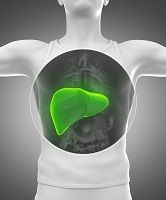Article
Positive Results on Ledipasvir-Sofosbuvir
Author(s):
French researchers found that patients with hepatitis C infections due to genotypes 4 and 5 did well on a combination of ledipasvir and sofosbuvir (Harvoni/Gilead.) The drug got FDA approval last year but since then there have been few reports on how well it is doing in the real world.

French researchers found that patients with hepatitis C infections due to the virus genotypes 4 and 5 did well on a combination of ledipasvir and sofosbuvir (Harvoni/Gilead).
In a study presented this morning at the 2015 International Liver Congress in Vienna, Austria, Armand Abergel of the department of digestive medicine at Universite d’Auvergne and colleagues at other Freench institutions and at Gilead Sciences, Inc. reported that the combination led to a sustained virologic response in these patients.There were no serious adverse events reported.
In the study, LDV/SOF was administered in a once-daily, fixed-dose combination tablet for 12 weeks to treatment-naive and treatment-experienced patients with or without cirrhosis. A total of 85 patients were enrolled in the study: 44 patients had genotype 4 and 41 patients had genotype 5 chronic HCV infection. Viral response rates were similar across all patient types.
Genotype 4 infection occurs mostly in the Middle East and in Sub-Saharan Africa and is estimated to account for 8% to 13% of HCV infections. Genotype 5 is found mostly in Southern Africa, and accounts for about 1% of all chronic HCV infections globally. Both types of infection are being seen more often in France due to immigration patterns. But so far there have been few clinical studies of how well these antiviral agents work in treating such patients.
The patients in the study were mostly men and their average age was 51. The study was conducted at 5 sites in France.
Overall the patients had a 93% response rate to the drug combination. The rate was highest in patients with genotype 4 infections who also had cirrhosis (100%) but that group was only 10 patients.
One theory on why cirrhotic patients do better is that because they have fewer healthy liver cells, they get more antivirals delivered per cell to the healthy tissue—a phenomenon seen in other trials of hepatitis C antivirals.
The researchers concluded that “a ribavirin- and interferon-free regimen of ledipasvir/sofosbuvir administered in a fixed-dose combination tablet once daily for 12 weeks resulted in high sustained viral response rates of 93% “ in these patients whether or not they had cirrhosis.
“This regimen was well tolerated and represents a simple, highly effective all-oral treatment option which could facilitate more widespread treatment of patients.”


